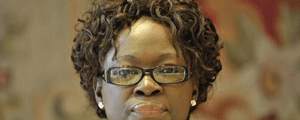
WIDESPREAD factionalism in both Zanu PF and MDC formations has been singled out as the major contributor to politically motivated violence this year, the Zimbabwe Peace Project (ZPP) has said.
BY OBEY MANAYITI
Speaking during a human rights discussion forum on Wednesday organised by @263Chart, ZPP director Jestina Mukoko said people were now fighting because of different opinions within same political formations.
“As of 2015, we have realised that the major cause of violence is factionalism within Zanu PF and MDCs,” Mukoko said.
”We have seen that the expulsion of 21 MDC Renewal Team members has brought in a number of incidences we have recorded.”
She, however, conceded that politically motivated incidences were decreasing, ranging on an average of 150 cases a month so far this year.
“What we have noted in terms of numbers is that the incidences have gone down as compared to prior years,” Mukoko said.
She said ZPP was concerned about the political situation in Hurungwe West where Zanu PF was accused of sponsoring terror against supporters of independent candidate Temba Mliswa as well as the abduction of activist Itai Dzamara.
- Chamisa under fire over US$120K donation
- Mavhunga puts DeMbare into Chibuku quarterfinals
- Pension funds bet on Cabora Bassa oilfields
- Councils defy govt fire tender directive
Keep Reading
Mukoko noted that human rights violations were coming in many different forms such as politicisation of food aid and the Presidential Input Scheme with people perceived to be anti-Zanu PF or linked to former Vice-President Joice Mujuru being denied the aid.
Executive director of the Zimbabwe Human Rights NGO forum Abel Chikomo said factionalism was affecting the work of civil society in the country.
He noted the need to sanitise some key institutions such as the Zimbabwe Republic Police, which has been accused of being the weakest link in human rights issues.
Chikomo expressed concern over utterances made by members of the presidium which seemed to inflame political violence recently.
Visiting United States official Steven Feldstein, who is Deputy Assistant Secretary of State in the Bureau of Democracy, Human Rights and Labour, said his country was worried about the level of human rights abuses in Zimbabwe, particularly the recent disappearance of activist Dzamara.
He said his country was committed to the development of Zimbabwe, especially on improvement of issues to do with human rights. Several speakers highlighted the need to have those in authority respect human rights and the Constitution, particularly the police and traditional leaders who have been misusing their power to suppress other people.
Zimbabwe Human Rights Commission chairperson Elasto Mugwadi said his commission was facing financial challenges in carrying out its mandate though there was willingness and commitment.
Mugwadi denied allegations that the commission was politically handicapped.
He said the ZHRC was investigating political violence cases in Hurungwe West ahead of the June 10 by-elections.







